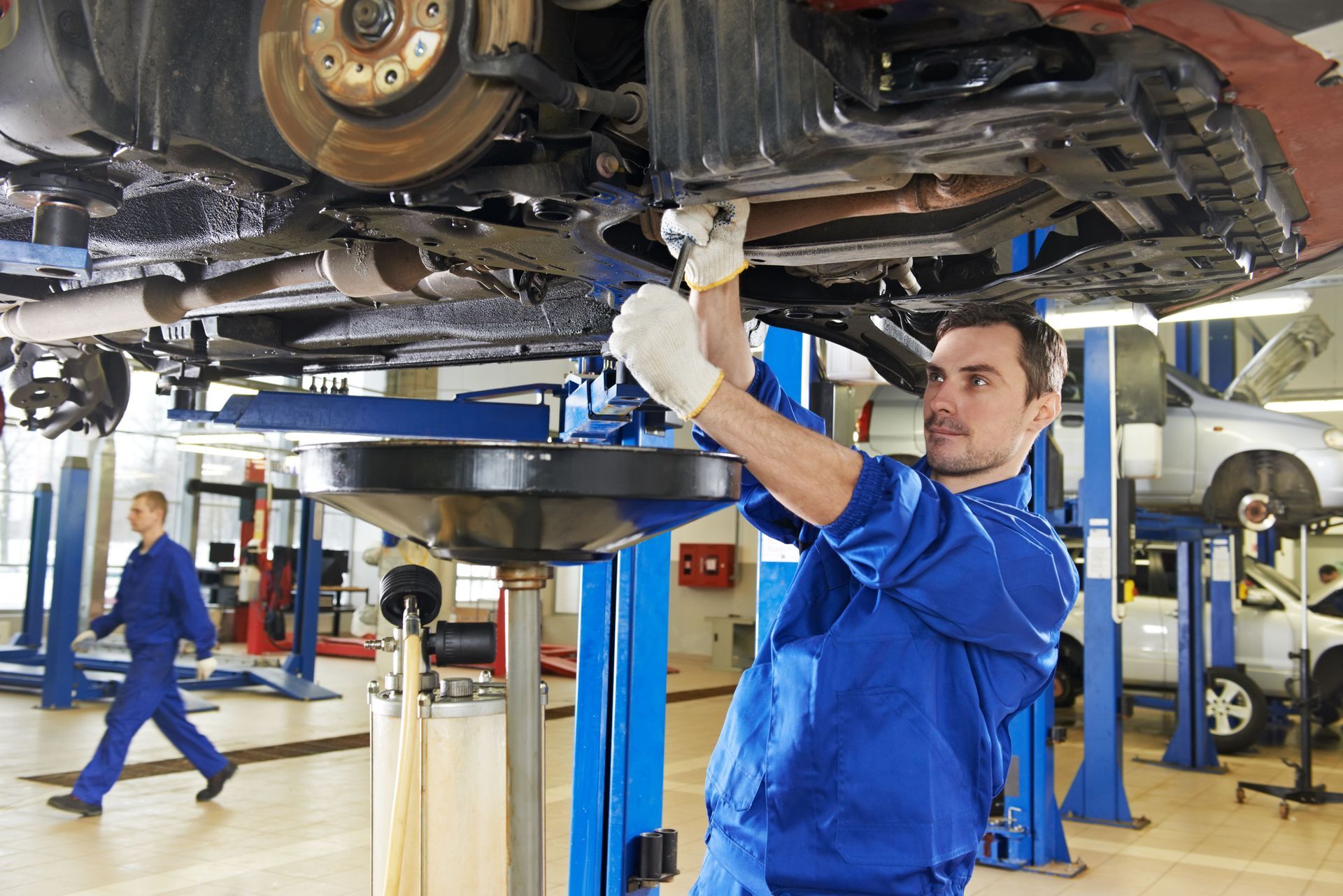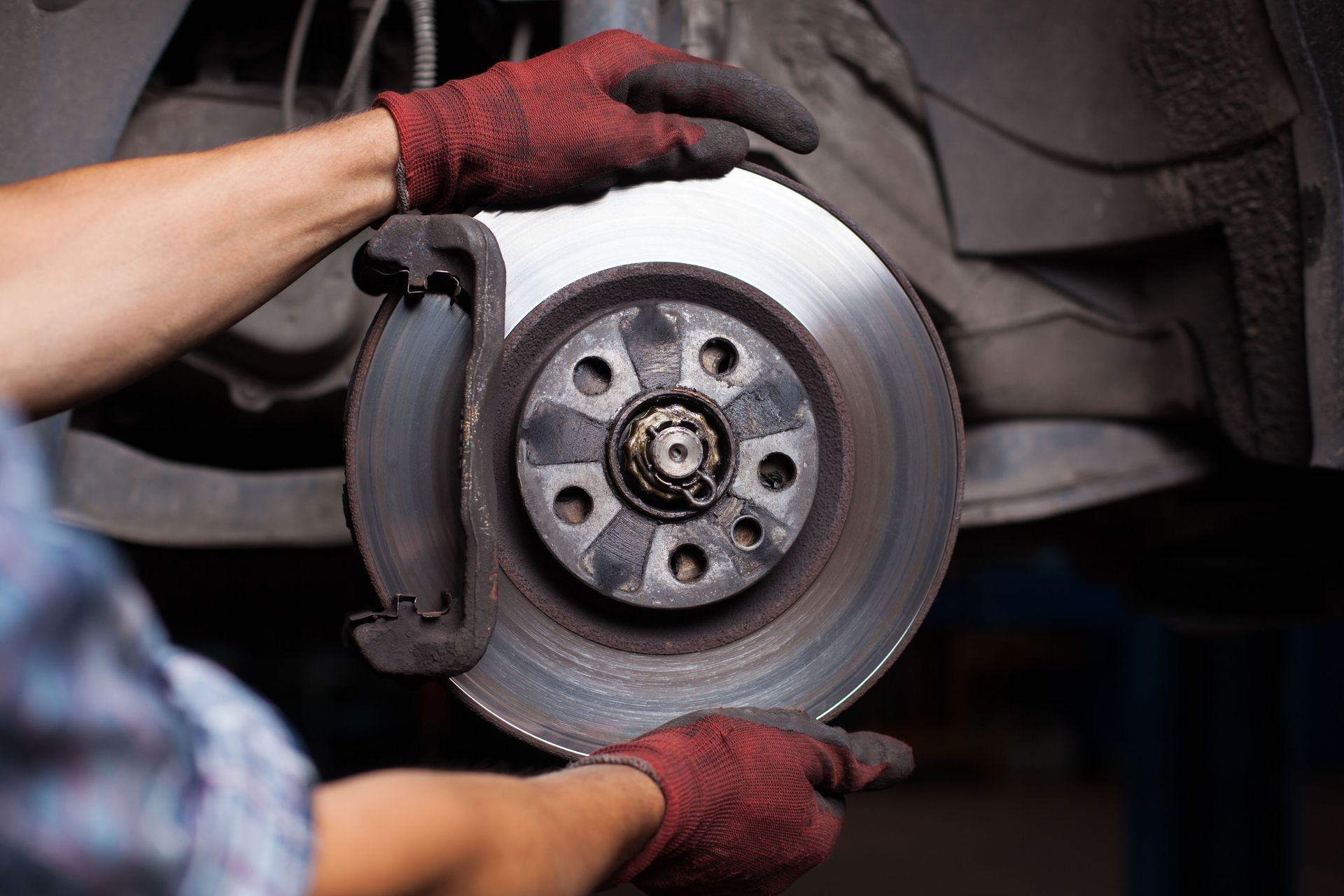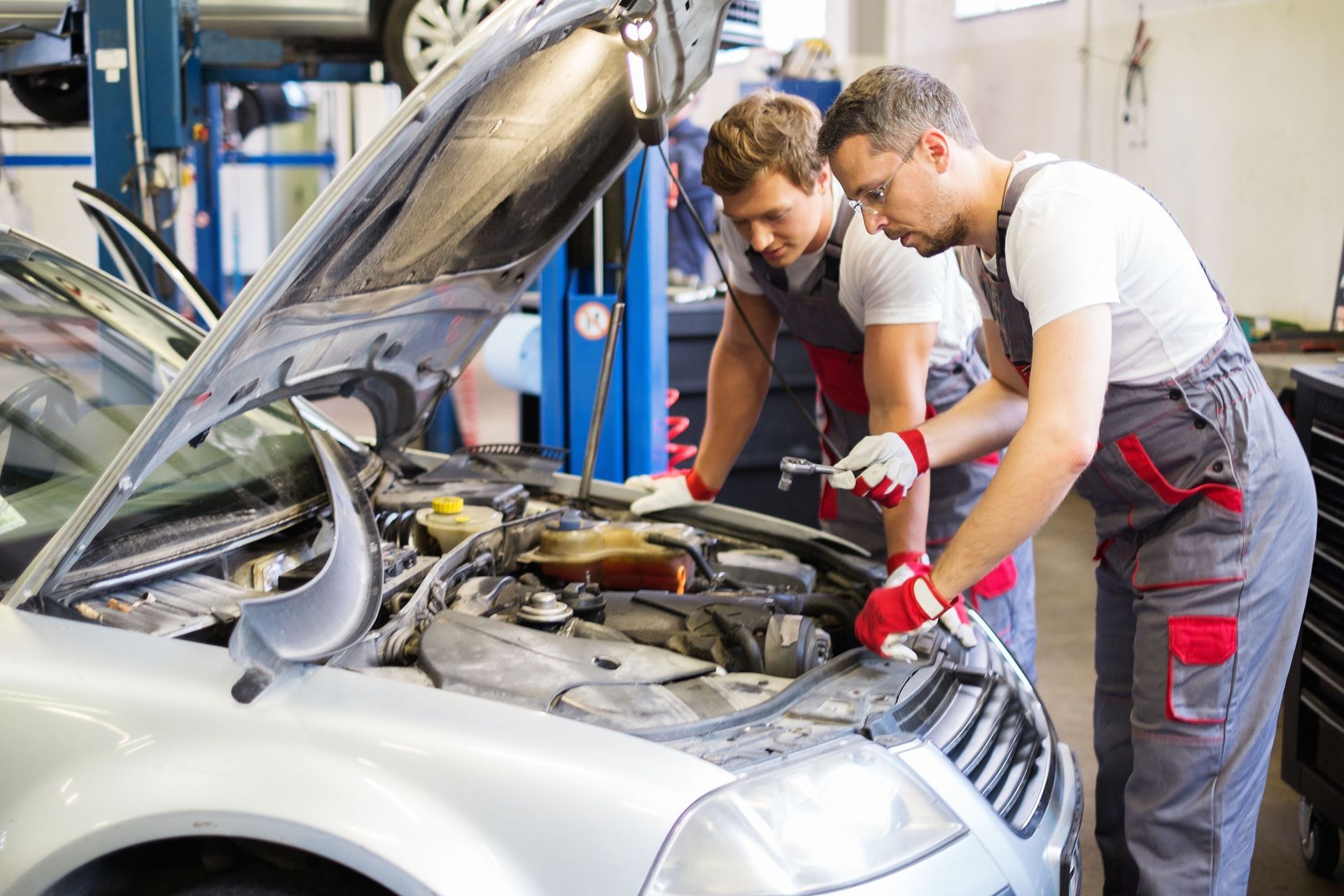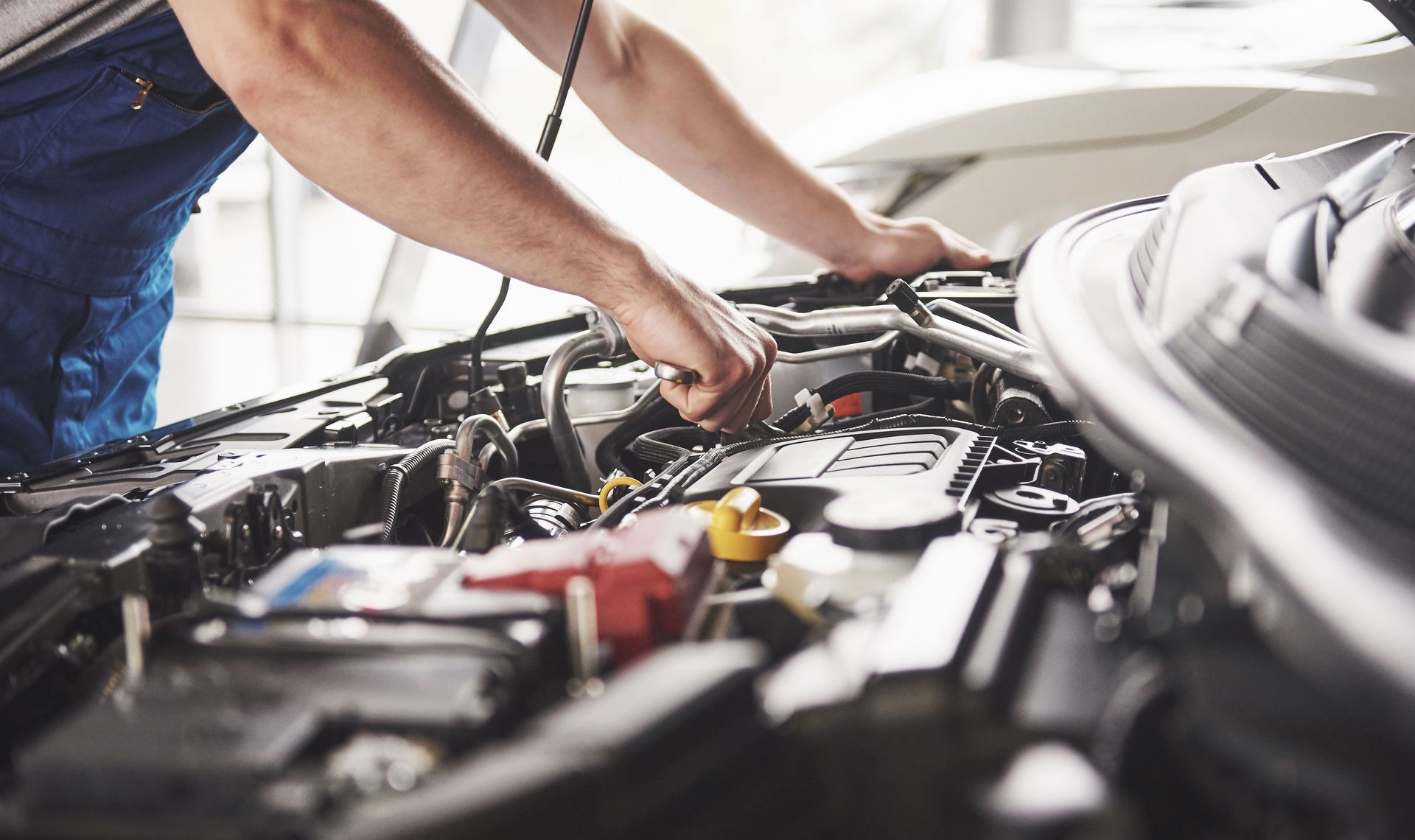August 7, 2025
Staying on top of your vehicle’s maintenance is one of the smartest decisions you can make as a car owner. Auto services are not just about preventing breakdowns—they’re about improving your car’s efficiency, extending its lifespan, and enhancing your overall driving experience. Regular maintenance protects everything from your engine and tires to your HVAC and battery systems. Without it, even a reliable vehicle can quickly turn into a money pit.
When auto services are performed on a consistent schedule, they help catch small problems before they become big ones. Issues such as worn brake pads, low fluid levels, or uneven tire wear might seem minor, but can lead to expensive repairs or safety hazards if ignored. Regular care also leads to better gas mileage, fewer unexpected breakdowns, and smoother overall performance.
Many vehicle owners feel unsure about when to schedule specific services, especially with evolving vehicle technologies and maintenance intervals. This guide breaks down the most common auto services you need, what signs to look out for, and how frequently they should be done—so you can make informed decisions and keep your car running reliably for years to come.
Oil Changes
Oil changes are one of the most essential auto services to prioritize. Motor oil lubricates your engine’s internal parts, reduces heat, and prevents wear caused by friction. Most drivers should change their oil every few thousand miles, though some vehicles using synthetic oil can stretch that interval even more. Still, factors like climate, driving conditions, and the age of the vehicle may influence how often you need an oil change.
Warning signs include dirty or gritty oil on the dipstick, increased engine noise, or dashboard warning lights. If left unchanged, old oil loses its ability to protect your engine, leading to reduced efficiency and potential damage.
Choosing the correct oil type—conventional, synthetic, or high-mileage—is also important. Conventional oil is fine for older, low-mileage cars. Synthetic oil offers superior protection and is ideal for newer or performance-oriented vehicles, especially in extreme weather conditions. When in doubt, consult your owner's manual or ask a professional technician.
Tire Maintenance
Tires play a major role in your vehicle’s performance, fuel efficiency, and overall safety. Routine tire maintenance includes checking pressure, rotating tires, ensuring proper alignment, and knowing when to replace worn tread. Tire pressure should be checked monthly, especially during temperature changes that can cause fluctuations.
Tire rotation roughly every other oil change helps distribute wear evenly across all tires, extending their lifespan. Balancing is also critical for reducing vibration and promoting smoother rides. Misalignment, which can occur after hitting potholes or curbs, leads to uneven wear and poor handling. Signs of alignment issues include your vehicle pulling to one side or uneven tread wear.
Tires should be replaced when tread depth falls below a certain threshold or when they show visible signs of damage such as cracks or bulges. Additionally, switching between summer and winter tires based on the season ensures better traction and safety year-round.
Brake Services
Brake maintenance is a cornerstone of vehicle safety. Your brakes are responsible for stopping your car efficiently and safely, so knowing when to service them is crucial. Signs of brake problems include squealing or grinding noises, vibrations during braking, a soft or spongy pedal, or the vehicle pulling when you apply the brakes.
Most brake pads' life can vary depending on driving habits and conditions. City driving and frequent braking cause them to wear out faster. Letting them wear down too far can damage the rotors, increasing repair costs.
Brake fluid also requires attention. Over time, it absorbs moisture, which can lead to a soft pedal feel or reduced braking performance. A yearly brake inspection can catch these issues early. While basic checks like inspecting pad thickness and fluid level can be done at home, a full professional inspection ensures your braking system is fully functional and safe for the road.
Battery Care
A reliable car battery is key to ensuring your vehicle starts without hesitation. Most batteries last three to five years, though that can vary based on climate, driving patterns, and how often the vehicle is used. Symptoms of a weakening battery include dim headlights, difficulty starting the engine, or needing frequent jumpstarts.
Corrosion around the battery terminals or a swollen battery case are also signs it’s time for a replacement. If your car is parked for long periods, the battery can lose charge. Regularly driving your vehicle or using a battery maintainer can help preserve its power.
Jumpstarting a dead battery is a helpful short-term fix, but it’s important not to rely on it as a long-term solution. Proper battery maintenance, such as cleaning terminals, securing connections, and regular testing, ensures that your electrical system remains reliable. When it’s time to replace the battery, opting for professional installation can help ensure compatibility and safety.
Fluid Checks
Fluids are the lifeblood of your car’s mechanical systems. They cool, lubricate, and support critical operations. These include engine oil, transmission fluid, brake fluid, coolant, and power steering fluid. Regularly checking and replacing fluids as needed helps prevent system failures and expensive repairs.
You can often inspect engine oil, coolant, and transmission fluid with dipsticks or built-in sensors. Brake and power steering fluids may require professional checks, especially since signs of contamination or leaks may not be visible right away.
If you notice puddles under your vehicle, odd smells, or warning lights, you could be dealing with a fluid leak. Catching these early is key to avoiding damage. Each type of fluid has a specific replacement schedule, and it’s important to follow your manufacturer’s guidelines. While some fluids need changing more frequently, like engine oil, others—such as transmission fluid—can last longer but still require occasional attention.
Air Conditioning and Heater Maintenance
Air conditioning and heating systems contribute not just to comfort but also to safety, especially in extreme weather. If your vents are blowing weak air, emitting strange smells, or producing inconsistent temperatures, it may be time for HVAC servicing. According to Consumer Affairs, routine auto services, including HVAC checks, should be performed every 5,000 to 7,500 miles or annually. Doing so can help identify refrigerant leaks, blocked filters, or compressor issues before they turn into costly repairs.
Replacing the cabin air filter once a year is a quick, easy way to improve air quality inside your vehicle and boost HVAC efficiency. Although DIY replacements are possible, professional servicing provides a more thorough inspection, including pressure testing and refrigerant recharging.
Keeping your HVAC system well-maintained ensures dependable heating and cooling year-round. It also extends the life of your system, reduces strain on the engine, and makes your car more comfortable in every season.
Consistent vehicle maintenance doesn’t just keep your car running; it protects your investment, enhances safety, and makes every drive more enjoyable. Auto services such as oil changes, tire care, brake inspections, battery upkeep, fluid checks, and HVAC maintenance are essential for long-term reliability. Following a proactive maintenance schedule helps prevent costly repairs and unexpected breakdowns while improving fuel efficiency and system performance.
Whether you perform basic checks at home or rely on trusted professionals, being attentive to your car’s needs makes a big difference. By staying informed and consistent with key services, you ensure your vehicle remains dependable and road-ready for years to come. Rely on the experts at Intermaco Auto Service—schedule your next maintenance today and drive with confidence!




